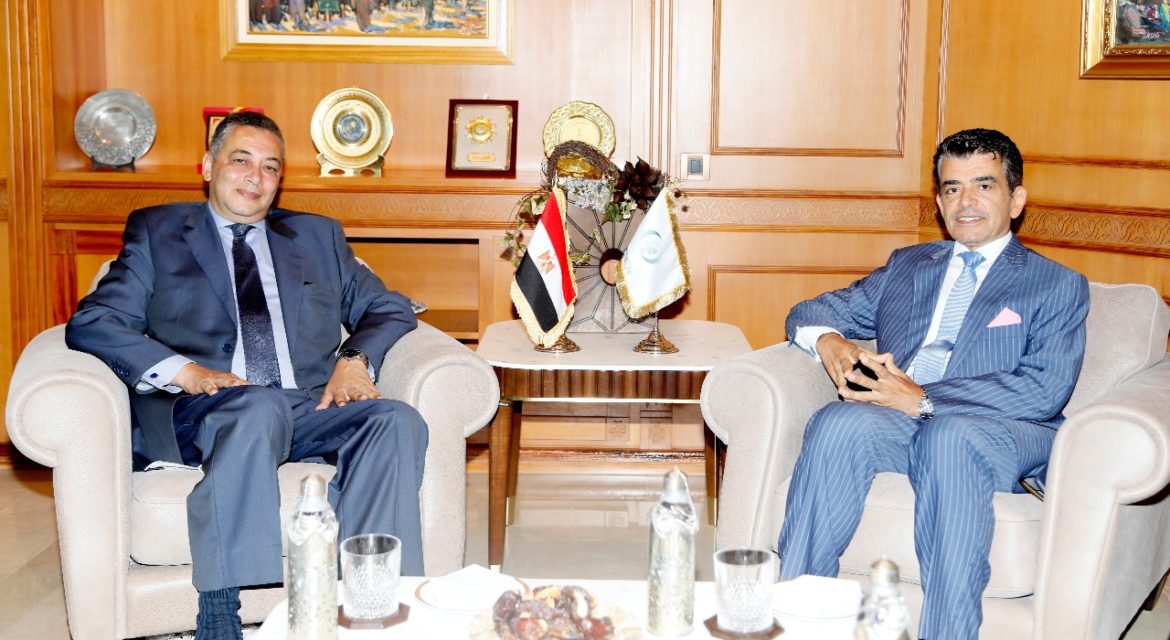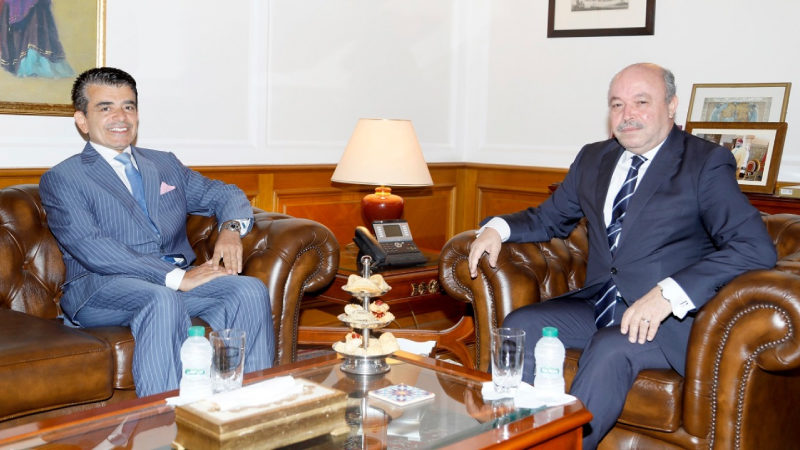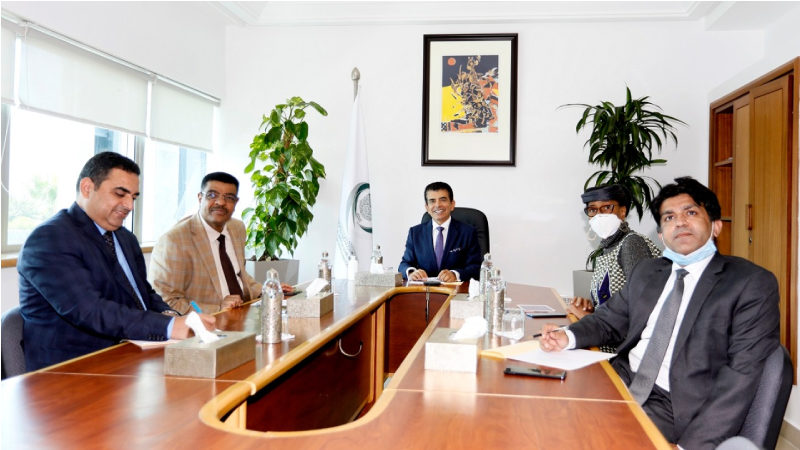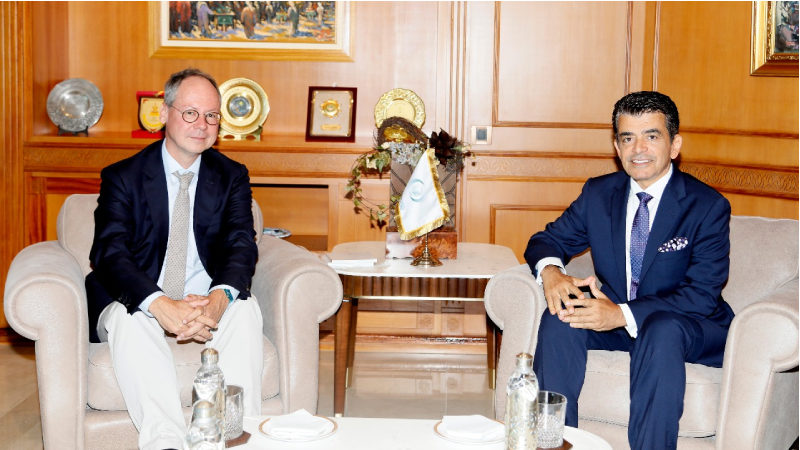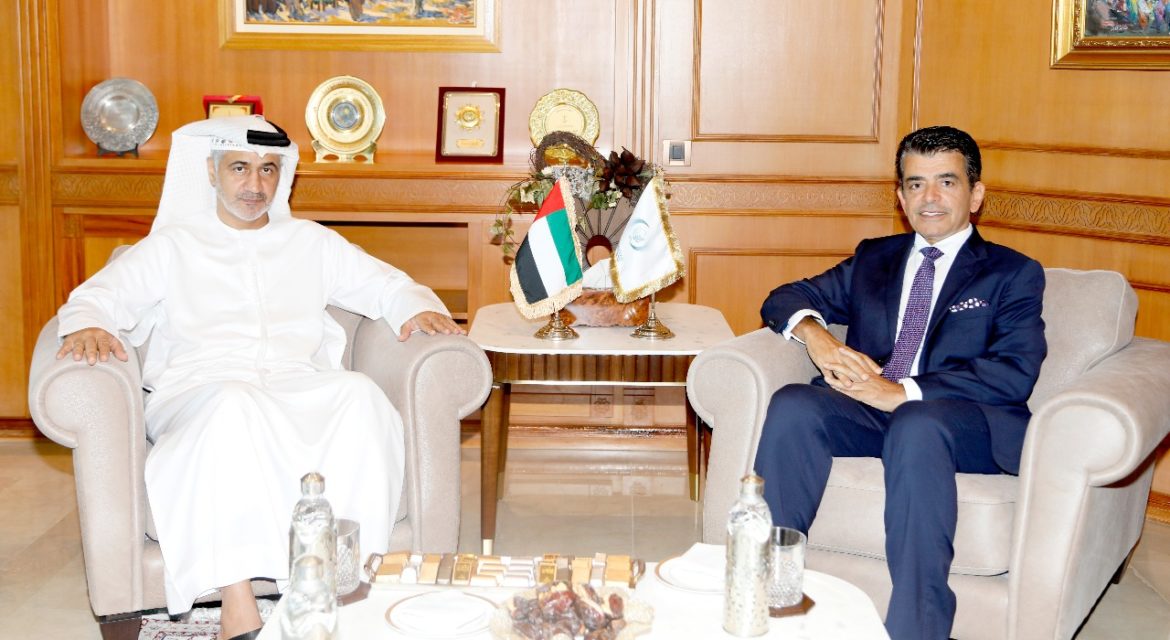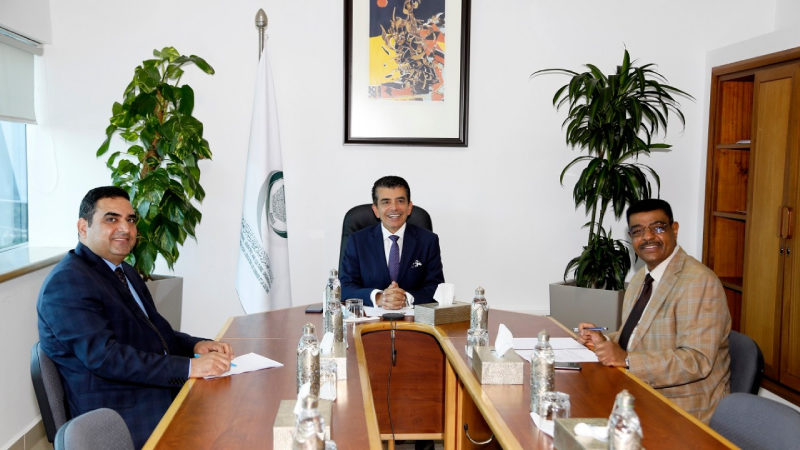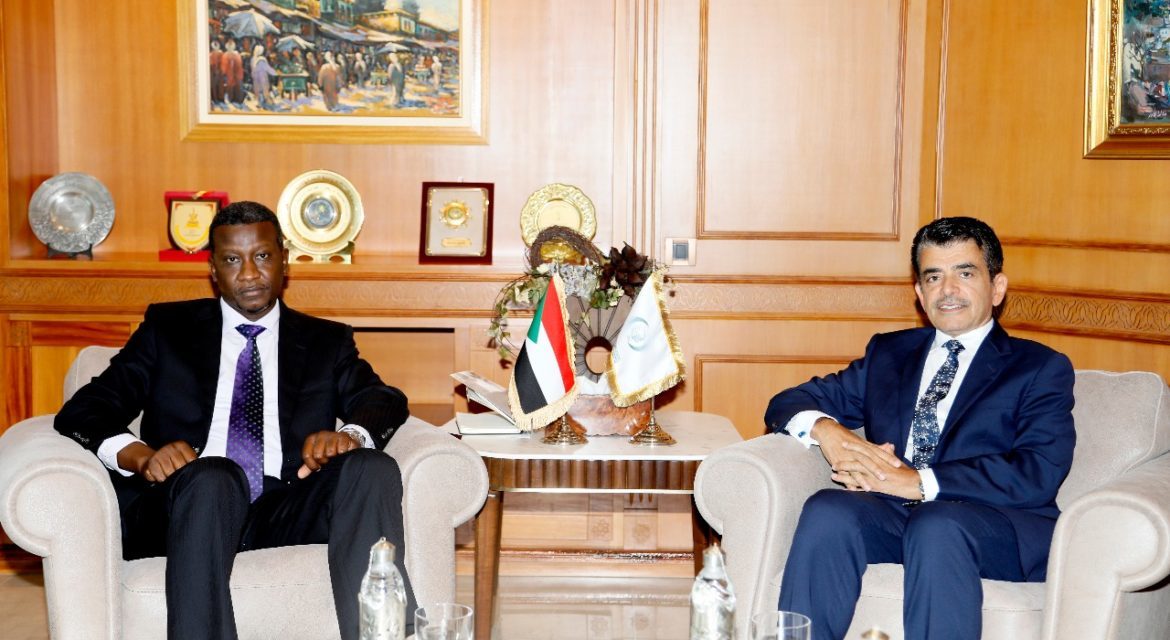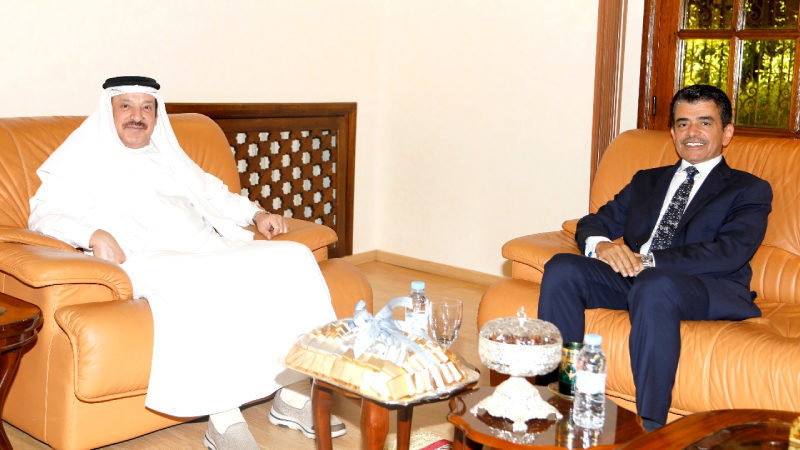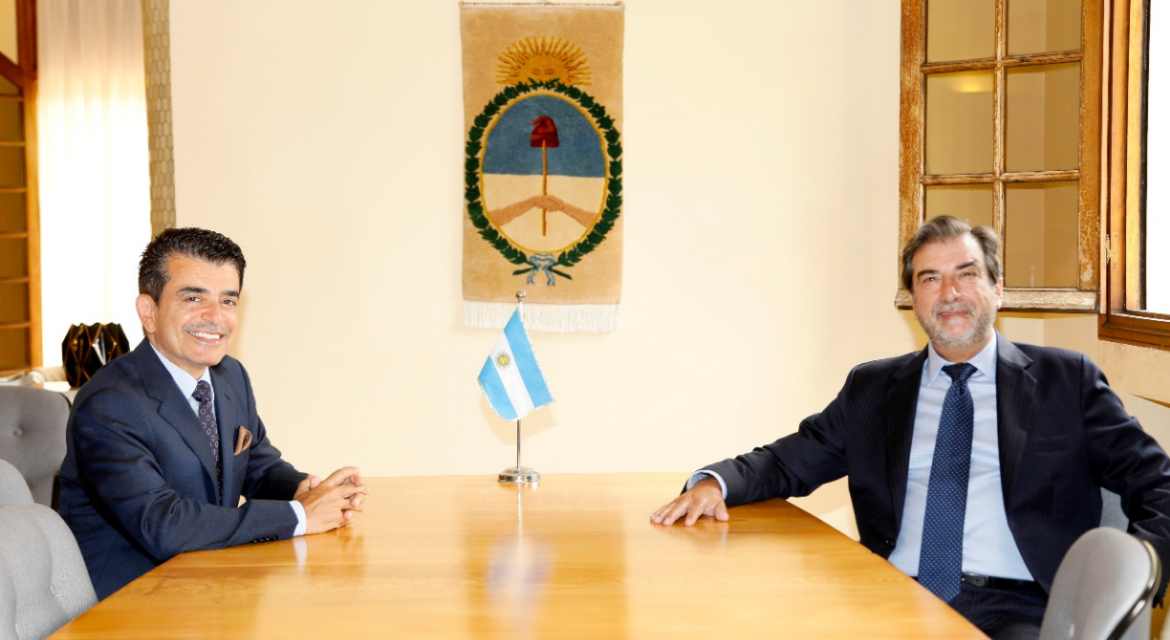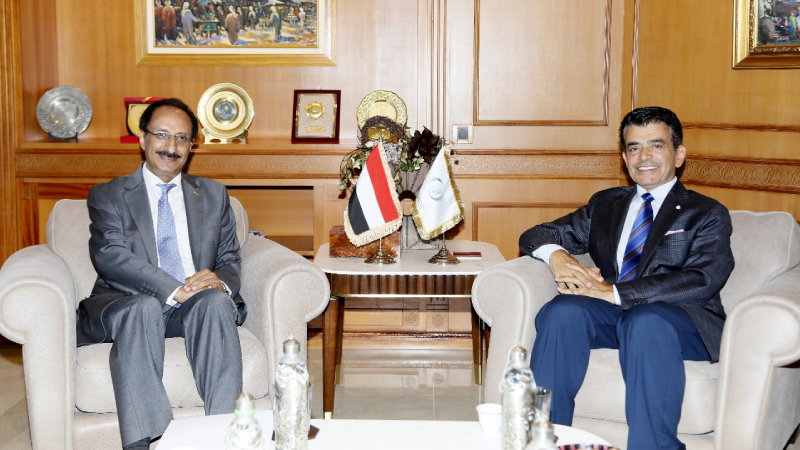Dr. Salim M. Al-Malik, Director-General (DG) of the Islamic World Educational, Scientific, and Cultural Organization (ICESCO) met yesterday, August 12, at the Organization’s headquarters in Rabat, Mr. Ashraf Ibrahim, Egyptian Ambassador to Morocco.
The two officials reviewed the updates on and the latest preparations for the “International Conference on Countering Illicit Trafficking of Cultural Property,” which Egypt will host. The discussions covered cooperation routes between ICESCO and Egypt in the fields of education, science, and culture.
Dr. AlMalik highlighted the Organization’s numerous actions to support Member States’ efforts in mitigating the impact of the COVID-19 pandemic in the fields of education, science, and culture.
He particularly commended the Great Library of Alexandria agreement for online access to the library’s via “ICESCO Digital Home.” The latter also contains several references in the fields of education, culture, and raising awareness.
Likewise, the DG praised Egyptian ministers’ great interest in developing robust relations with ICESCO. He also lauded their keenness to take part in ICESCO’s ministerial and international virtual conferences over the last period.
The two parties discussed the latest preparations for the international conference to be held in Egypt this year, under the high patronage of H.E. President Abdel Fattah Al-Sissi. ICESCO will hold the Conference in cooperation with the Egyptian Ministry of Tourism and Antiquities on “Countering Illicit Trafficking of Cultural Property and its Restitution.” Dr. AlMalik stated that ICESCO and the Ministry are closely coordinating to issue a strong declaration following the key conference.
The Egyptian Ambassador commended ICESCO’s works. He added that Egypt has prepared multiple plans and programs for the Celebration of Cairo at the “Islamic World Capital of Culture for 2020”. Though the pandemic delayed the celebration and implementing the plans, the Ambassador reaffirmed Egypt’s determined interest in the upcoming conference.


